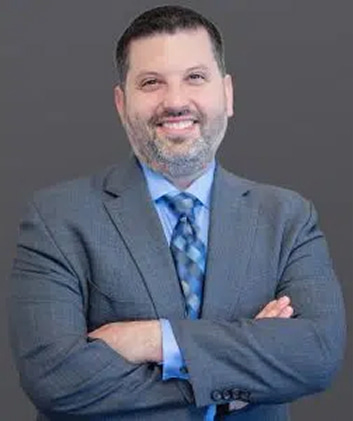Key Takeaways:
- A healthcare surrogate is a person you authorize to make medical decisions if you’re unable to do it yourself.
- When choosing a healthcare surrogate for your advance directive, look for someone calm under pressure, clear about your wishes, and confident speaking with doctors.
- Florida law requires a written directive with two adult witnesses to make your choice official.
- Boca Raton Probate Attorneys helps you choose wisely, document it correctly, and align it with your full estate plan.

A healthcare surrogate is the individual you legally authorize to make medical decisions on your behalf if you become incapacitated. In Florida, this is done through an Advance Healthcare Directive. This document allows you to state your medical preferences and nominate someone to carry them out.
The surrogate’s authority typically activates only when a physician determines that you are unable to make or communicate medical decisions. Until then, you retain full control over your own care. The surrogate may be called upon to decide about life-sustaining treatment, pain management, surgery, or long-term care facilities.
Appointing a healthcare surrogate is a proactive way to ensure your medical preferences are honored. It also spares your family from guesswork or conflict during medical crises. Keep reading to learn how to choose the right healthcare surrogate, what legal steps are involved, and what qualities to prioritize when making this important decision.
Qualities To Look For In A Healthcare Surrogate
The person you appoint does not need to be a medical expert. However, they should be capable of making informed decisions under pressure, communicating clearly with healthcare providers, and following your documented preferences.
The following characteristics are typically helpful when evaluating a potential healthcare surrogate:
- Demonstrates sound judgment and calm decision-making in stressful situations.
- Understands your values and medical preferences and is willing to advocate for them.
- Can interact confidently with doctors, nurses, and hospital staff.
- Lives nearby or can travel quickly if needed.
- Will respect your wishes even if others disagree.
While legal capacity is important, emotional capacity can be just as essential. You want someone who can manage the emotional weight of decision-making during serious medical situations without freezing up or deferring to others.
Common Candidates & What To Know About Each Option
Many people consider someone close to them, like a spouse, adult child, sibling, or trusted friend, to serve as their healthcare surrogate. Each option has different advantages and potential limitations. The table below outlines key considerations:
| Candidate | Potential Benefits | Possible Drawbacks |
| Spouse or Partner | Likely to know your wishes well; legally recognized relationship. | May be too emotionally affected to make objective decisions. |
| Adult Child | Can be assertive and caring; may already be involved in your care. | Sibling conflicts can arise; maturity level varies by individual. |
| Sibling | May provide balance and objectivity; familiar with family dynamics. | They may be less familiar with current medical preferences or lifestyle. |
| Trusted Friend | May be highly loyal and neutral in family disputes. | May lack legal standing if not named formally; availability varies. |
Make sure to have an open conversation with whoever you choose. Confirm they are willing to serve and fully understand your medical values and care preferences.
Questions To Ask Before Finalizing Your Choice
Selecting a healthcare surrogate is not just about who you trust personally. It is about choosing someone who can carry out your medical wishes under stress and within legal boundaries. The right candidate must be reliable, informed, and able to communicate effectively with medical professionals.
These questions can help you determine whether a potential surrogate is well-suited for the role:
- Are they emotionally capable of making high-stakes decisions?
- Do they understand and respect my views on end-of-life care, resuscitation, or life support?
- Are they comfortable speaking up in clinical settings?
- Will they follow your preferences even if others (including family) disagree?
- Are they geographically available and able to act quickly in a medical emergency?
Taking time to reflect on these factors can clarify your decision and help ensure that your future care will be managed by someone who understands and respects your values.
Legal Documentation & Formal Designation Requirements
In Florida, you can appoint a healthcare surrogate by completing a written directive that clearly states who should make medical decisions if you become unable to do so. This document typically includes both a living will and a designation of healthcare surrogate.
To be valid, the form must be signed while you are mentally competent and at least 18 years old. It also needs to be witnessed by two adults, one of whom cannot be your designated surrogate. Notarization is not required, but is commonly recommended for added clarity and credibility.
You may also name backup surrogates in case your primary choice is unavailable when needed. After signing, it is wise to distribute copies to your surrogate, any alternates, your primary care doctor, and keep a copy in an easily accessible place.
Common Mistakes To Avoid When Choosing A Healthcare Surrogate
Selecting the wrong surrogate can lead to miscommunication, family disputes, or medical choices that contradict your wishes. Some people delay naming one altogether or assume their spouse will automatically step in. These assumptions can cause avoidable complications.
The following tips highlight common missteps and how to avoid them:
- Naming someone who has not agreed to the role – Always speak to your surrogate in advance to confirm their willingness.
- Failing to document your choice – Verbal instructions may not be enough in a crisis; use a legally recognized form.
- Choosing based on emotion, not logic – Affection does not guarantee suitability; assess their judgment and reliability.
- Ignoring geographic limitations – Your surrogate should be able to get to the hospital when needed.
- Not naming alternates – If your primary surrogate is unavailable, having backups ensures continuity.
By recognizing these common mistakes and planning ahead, you can choose someone who is ready and able to act in your best interest. Taking the time to make a thoughtful, well-communicated decision can ease the burden on your loved ones and ensure that your healthcare preferences are followed without confusion or delay.
When & How To Update Your Healthcare Surrogate Appointment
Your choice of healthcare surrogate does not have to be permanent. Life events or changing relationships may lead you to reconsider. You can revoke or update your advance directive at any time, as long as you have mental capacity. Reasons to consider a change include:
- Divorce or separation from the person currently named.
- Death or incapacity of your existing surrogate.
- A shift in family relationships or trust dynamics.
- Your surrogate moves far away or becomes unavailable.
To update your directive, complete a new one and destroy previous versions. Make sure to notify your new surrogate and provide copies to relevant parties, including healthcare providers and your estate planning attorney.
FAQs About Advance Directive Healthcare Surrogates
Choosing a healthcare surrogate is a personal and legal decision that raises important questions. Here are a few answers to help clarify the process and what to expect.
Does My Healthcare Surrogate Have To Live In Florida?
No. Your surrogate can live anywhere, but proximity is helpful in emergencies. If the person lives far away, consider naming a local alternate to ensure fast access when needed.
Is My Healthcare Surrogate Responsible For Paying My Medical Bills?
No. Your surrogate has the authority to make medical decisions, but they are not financially liable for your care unless they have signed a separate agreement assuming that responsibility.
Can I Appoint More Than One Healthcare Surrogate?
Yes, you can name alternates in case your primary surrogate is unavailable or unwilling to act. However, Florida law does not allow two people to serve jointly unless specifically authorized.
Does A Healthcare Surrogate Have Access To My Medical Records?
Yes, once the directive is in effect, your surrogate is entitled to access your medical information to make informed decisions on your behalf.
Can I Change My Surrogate If I Change My Mind Later?
Absolutely. As long as you are mentally competent, you can revoke or update your directive at any time by signing a new one and notifying all relevant parties.

Still have questions about naming a healthcare surrogate or how the process fits into your estate plan? Boca Raton Probate Attorneys is here to help you take the right steps with confidence and clarity.
How Boca Raton Probate Attorneys Supports You
Selecting a healthcare surrogate is a personal choice that carries legal weight. Boca Raton Probate Attorneys provides clients in Palm Beach County and beyond the clarity and support needed to make that choice with confidence. We assist in preparing valid advance directives, guide you through evaluating candidates, and ensure your medical preferences are clearly documented and legally enforceable.
Our team also reviews your broader estate plan to ensure consistency between your advance healthcare directive, power of attorney, and any existing trusts or wills. Whether you are establishing your plan for the first time or refining previous documents, Boca Raton Probate Attorneys helps you take the right steps to protect your wishes and ease the burden on your loved ones.




